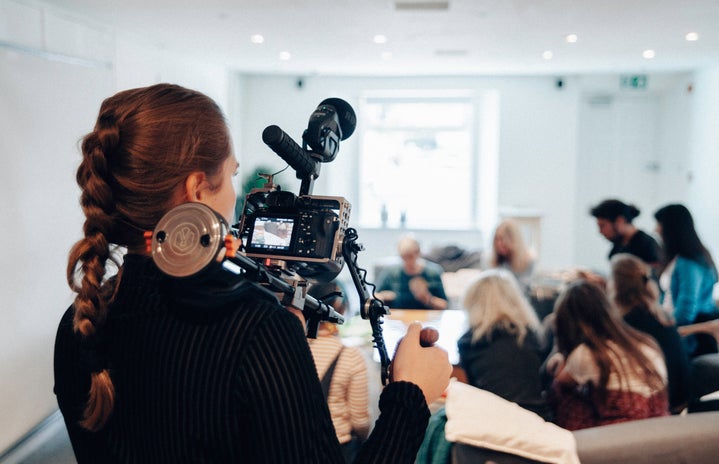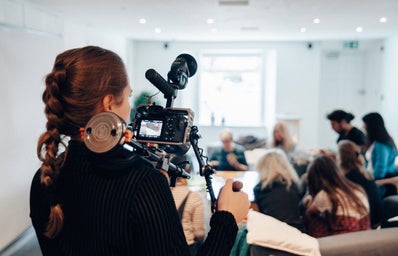Edited By: Shloka Sankar
The past decade has been phenomenal for all them artsy people in Asia- there has been a crazy onset of directors who have a unique vision of how they want a narrative to be set in the media that they make. Some directors make use of the natural world that they live in- they depict scenery that flows with the characters and their inner turmoil. Break-ups and fights happen by the cliff sides with the ocean waves crashing on the rocks, the calm sense of a settled kind of love on the sands by the beach. You feel the melancholy of a mother gazing far into the night sky and your usual SRK-Kajol running towards each other in the mountains to be embraced in full passion. Some directors make use of artificial lighting or close up shots of the actors, trusting them to convey with their bodies what the environment cannot. But something that is slowly becoming a quite distinct and unique kind of filmmaking is the vision of female directors- especially in Asian countries. With a rich cultural background providing them with the correct accessories to make their movies heart-shattering, these women have managed to make a space for themselves in an obnoxiously male dominated sector. Following are five distinct pieces of Asian media that have a clear vision guided by the female gaze, that you can watch even during a busy semester.
Not Me by Anucha Boonyawatana
This timeless masterpiece has anti-institution written all over it. Directed by trans-activist Anucha (or Nuchie as she prefers it), Not Me tackles the civil lawlessness of Thailand and the oppression of the working class by the rich upper tier of society who have access and control of the judiciary, legislature AND the media channels. A Thai drama spanning over 14 episodes of 45 minutes each, we follow the journey of White, an aspiring civil servant, who gets dragged into the underground world of his rogue twin brother, Black (yes the names have double meaning here). White traverses the gray-space of protest and the fight for justice, trying to figure out what the right way of protest is. Nuchie’s sense of direction provides a unique narrative to the anti-institutional theme of the show, where the people protesting are all queer. One can sense the “us” vs “them” theme from the get-go, which is further enhanced by her sharp jump cuts in cinematography where she takes us from the weed-ridden alleyways where youngsters plan their next destination for rallies to posh dining spaces occupied by old men in the span of a second to show us the stark realities of economic and social inequality in Thailand.
Blueming by Hwang Da Seul
A college romance between two boys majoring in filmmaking, this is Korea at its artsy best. An eleven episode mini-series of 14 mins each, this show is way too short, and rightfully concludes with one grasping at the tiniest details. Hwang Da Seul is a master at delivering angst, and she lives up to her title of evil godmother by doing exactly that. Not only is this show delightfully queer, it also tackles the main character’s body image issues and eating disorders. Instead of centering around a queer awakening, or the inevitable homophobia, Da Seul creates a bubble in the world of Blueming- homophobia takes a back seat which humanizes the boys as being something more than just gay. She uses light as a source of depicting the tension in a scene- fights and breakups occur under the artificial glow of streetlights or camera flashes and reconciliation is cocooned by the warm light of dawn or the comforting gloom in a bedroom. This show is short yet all consuming- a perfect piece to devour on a lazy weekend.
Old Fashioned Cupcake by Kato Ayaka
This show had my heart from the very moment they used the close up shot of breaking that egg-yolk in the opening credits. Ayaka uses the food allegory to depict the seduction of an older man by his younger co-worker, and yes it is as mind-blowing as it sounds. 39 year-old Nozue-san finds himself in a peculiar early-midlife crisis, where he doesn’t have the will to enjoy life anymore- and in comes his very young knight-in-shining armor, Togawa, who whisks him away on cute little pancake dates, where they frequent little eateries and have the time of their lives. Togawa tries to seduce Nozue via pancakes, whereas our protagonist slowly discovers his feminine side. Ayaka tries to subtly break the hyper-masculine notions of Japanese society using harsh-framing techniques that also tell the very sensual story of Togawa’s want, dripping off of him like syrup on a pancake. This show has very special place in my heart, and I tried very hard to gatekeep it, so ya’ll better watch it.
Qarib Qarib Singlle by Tanuja Chandra
You didn’t think India was gonna make it, did you? Well brace yourself, because if you haven’t seen this gem of a movie, which has frickin Irrfan as a main character, then what are you even doing with your life? Tanuja Chandra delivers one of the most perfect rom-coms I have ever seen in bollywood, Jab We Met included. The beauty of this show sparkles in its witty dialogue, exceptional acting and just the perfect comedic timing. However, the USP is the very clever style of direction by Ms.Chandra- she makes our female protagonist break the fourth wall. Jaya is a widow, who tries to find love again via a dating app, and chaos ensues when she meets Yogi, the most un-Jaya person ever. The two decide to go on a trip where they meet each other’s exes, and fall in love in the process. Jaya breaks the fourth wall and speaks her innermost feelings directly to the audience, and sometimes doesn’t speak, just looks at us in such an enigmatic way, that it makes you wonder what exactly she’s thinking. Tanuja Chandra explores female love with the very talented Parvathy and Irrfan delivering exactly what was needed of them, resulting in a fresh and beautifully awkward rom-com between two grown-ass adults. I LOVE.
And this brings us to the end of this reading. If you did not understand anything I blabbered about, that’s your cue to go watch the shows and movies and figure it out for yourself.


